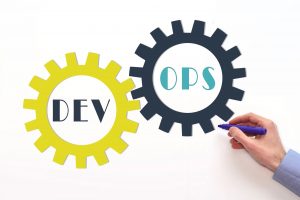
9 Data Analytics Skills You Need to Excel in the Field
Posted by Walid Abou-Halloun Date: Apr 22, 2018 3:45:39 AM
Want to be in a field with faster than average potential growth?
Data analysts have 19% average job growth, which is expected to continue growing within the next six years.
A data analyst gathers a company’s data and uses it to strategise new initiatives. This helps the company see where they can increase revenue and how to do it.
Data analytics skills can be very beneficial in similar positions as well. The job’s purpose is to find areas where the business can improve.
Aspiring to take on this career path? Here is what you need to know in order to be a data analyst.
Data Analytics Skills to be Successful
The list of responsibilities is overwhelming, so let’s break it down to the top 9 skills you should obtain before jumping into the data analyst world.
Don’t worry. They are not all technical, so don’t think you need to be some computer genius to become a data analyst.
1. Number Skills
Being good with numbers gives you a huge advantage. This refers to mathematical skills in problem solving, simple graph reading, and basic data projections found through multiplication and division.
Scheduling, budgeting, organising numbers, and understanding trends are all tasks completed in no time if you are comfortable with numbers.
Your day-to-day tasks will often be analysing the previous day’s highs and lows and then comparing them to days similar.
For example, you could compare the first Monday in March of 2018 to the first Monday in February of 2018. Look at the number of purchases, landing pages on the website with most views, and so on.
How can you increase success with numbers?
If you are still in college, taking additional math and statistics classes will help bridge the gap between having the ability to add up the data and being able to understand what the numbers are saying.
If you have already graduated from college, do not fret. There are hundreds of tools on the web to help you learn how to be successful. Blogs are one especially great way to learn because the content is updated to correlate with new trends.
2. Business Skills
Data analysts should not only be well-versed in technical skills, they must also have soft business skills which are just as important.
The ability to work in a company’s cultural environment, quickly adapting and learning new skills, being teachable, and excelling in time management is crucial.
You will most likely have project deadlines. Being organised and having time management skills will make the experience a lot easier and allow for more time to do your own research on other company trends to stay up-to-date.
The ability to acquire these business 101 skills will allow you to be comfortable with your position and increase your data analytics skills. You’ll also be much more marketable in the future.
3. Communication Skills
You need to be an excellent communicator in the data analytics field. The better a communicator you are, the more willing your boss in letting you try new things and channeling your inner creative side.
Teaching others how to find the data you were able to uncover will also impress the executives. You will likely facilitate meetings in this position so be sure to be an active participant.
How are you going to share your findings adequately if you don’t have great communication skills? That is why this skill is so essential.
Communication skills also involve creative thinking. Numbers are very important in data analytics skills, but the ability to execute the strategy developed from the numbers cannot be done without a creative outlook.
4. Software Knowledge
Every company will have their own processes and strategies that they want you to cater to. The one thing that is almost always the same across all companies within the same industry is the type of software they use.
Here are some examples of software used to gather and analyse data. Studying this software will help you get a head start on your job pursuit:
- Adobe Campaign. This software manages data and monitors campaigns across multiple channels.
- Google Analytics. One of the most popular (and free) tools in the data world, Google Analytics has many filtering capabilities that can track trends.
- Microsoft Excel. Many databases are configured with Excel. Understanding its many different functions will help you succeed.
- Scripting. Python, Matlab, and SAS are examples of data analytics tools that speak a very different language. Even a basic level of understanding will do you wonders when looking for a job.
- Programming. This type of coding is not essential for the job duties, but understanding a website’s coding limitations will help when developing strategies to increase web optimis Some examples of these are HTML, CSS, and Javascript.
Never heard of any of these? Don’t sweat. Basic understandings are what you are going for, and that is done through lots of research on the database. These data analytics skills are the hardest to learn but can be the most beneficial.
5. Technical and Computer Skills
Even if you walk to an interview knowing you don’t have some of the basic data analytics skills or a limited amount of experience using these databases, the road isn’t over for you.
If you have an understanding of computers and have the overall technical knowledge to be teachable, you are halfway there.
Even a basic understanding of how Gmail works and how to use Microsoft Word is a great start to obtaining many data analytics skills.
Within each industry, there are certain databases that are more likely to be used than others. You do not have to have experience with Python to prove that you have computer skills. Be open to learning new things and study these skills if you do not already have them.
6. Data Visualisation
All data analytics skills are meant to bring the business one step closer to achieving their business goals. Being able to visualise data in multiple ways is a key indicator of a successful data analyst.
Whether it be on a graph or through hard numbers, a data analyst must be able to find a problem and a solution based on the data. Being able to see the numbers and see the possible success without all of the information and testing necessary is a huge benefit.
For example, if the data is showing a decline in conversions through email marketing but an increase in conversions through social media, a data analyst would need to have enough experience with data visualisation to be able to estimate through research when this started.
What was the first email sent in the sudden decline? Are the additional social conversions the same contacts as those who unsubscribed from email?
Visualising the potential growth in a business is a great quality in the field of data analytics.
7. Attention to Detail
Can you imagine having the marketing team put weeks into a campaign that was driven by false figures? Sadly, this happens more than you think.
Although 85% of companies are trying to thrive on analytical data, only 37% of them have been able to be successful. Most of this comes from the fact that the idea is still so new and paying close attention to each number can be difficult.
Even moving a decimal point can change the game when it comes to a business strategy. Attention to detail makes for much happier departments and more successful campaigns.
It would be better to take an additional day to go over the math than to develop a campaign based on false information.
Definitely be sure to improve this skill and have it on your resume of data analytics skills.
8. Teamwork
Data analysts have a small part in each department. They are the go-to person to uncover possible areas of growth.
When the sales department has questions about the success of a certain product over a period of time, you would be the one expected to have answers. If the social media team wants to know the percentage of conversions that went through because of the last uploaded video, you would be asked for assistance.
You likely will be on the technical team, but being able to work with every department and cater your responses based on their wants and needs will sure hep you thrive.
9. Critical Thinking
The ability to ask questions may seem like human nature. But it isn’t.
Not only do you need to be comfortable asking questions when you have them, but you need to think critically and understand the way to get the needed data by asking questions.
Most people do not know the language of the data world. Asking about their projected ROI, their organic reach, or even the landing page trends over the past will get them searching for the correct and useful data.
Data Analysts Have a Diverse Skillset
Data analytics skills are vast and varying. It covers both soft skills and technical skills because a data analyst’s duties are crucial in every aspect of a company.
Interested in being recruited for this position? Check out what we can do for you to get you started.




